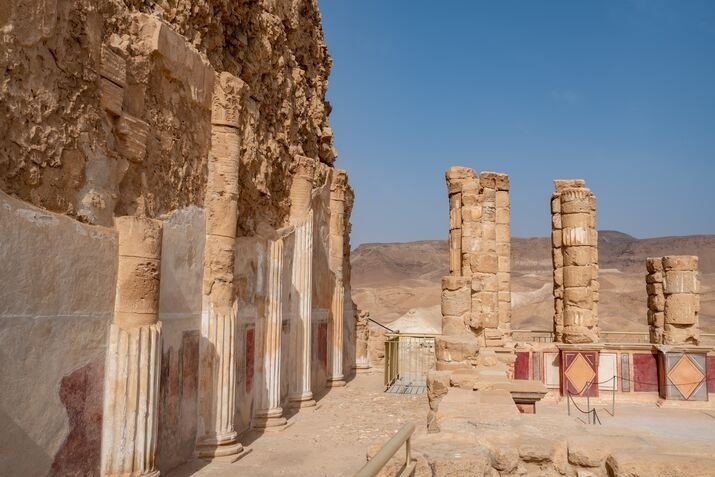
Getting Around Israel Best Travel Methods Explained
Choosing the best way to travel around Israel can shape your entire holiday experience. Israel is compact, modern, and well-connected, making it easy to explore iconic cities, sacred sites, deserts, and coastlines in a relatively short time. Whether you’re planning sightseeing tours, a family vacation, a honeymoon, or a multi-city itinerary with private or group tours, understanding your transport options helps you travel smarter and more comfortably.
This guide breaks down all the best ways to get around Israel, helping you plan smooth travel arrangements and stress-free Israel tours booking.
Understanding Travel Distances in Israel
Israel’s small size is a major advantage. Traveling between major destinations is quick and efficient.
Typical travel times:
- Tel Aviv → Jerusalem: ~1 hour
- Tel Aviv → Dead Sea: ~2.5 hours
- Jerusalem → Negev Desert: ~2–3 hours
Because distances are short, travelers can choose flexible itineraries without spending excessive time on the road.
Private Tours: The Most Comfortable Way to Travel
Private tours are widely considered the best way to travel around Israel, especially for first-time visitors, families, and honeymoon travelers.
Why choose private tours?
- Door-to-door transportation
- Personalized itineraries and pacing
- Expert local guides
- Ideal for sightseeing-heavy travel
Private tours work perfectly for Israel holiday packages, honeymoon travel, and custom itineraries covering multiple regions.
Group Tours: Cost-Effective and Well-Organized
Group tours are a popular option for travelers seeking structure and value.
Benefits of group tours:
- Lower cost compared to private travel
- Fixed itineraries covering top attractions
- Professional guides and organized schedules
- Social travel experience
Group tours are ideal for solo travelers, budget-conscious vacations, and first-time visitors who prefer guided sightseeing.
Public Transportation in Israel
Israel has a reliable public transportation network, especially between major cities.
Trains
Israel Railways connects Tel Aviv, Jerusalem, Haifa, and other major cities efficiently.
Pros:
- Fast and affordable
- Comfortable and modern
Cons:
- Limited access to remote attractions
- No service from Friday afternoon to Saturday night (Shabbat)
Buses
Buses reach almost every corner of the country.
Pros:
- Extensive coverage
- Budget-friendly
Cons:
- Slower than trains
- Less convenient for sightseeing itineraries
Public transport suits independent travelers with flexible schedules.
Renting a Car in Israel
Self-driving is another option for exploring Israel, particularly outside major cities.
When renting a car makes sense:
- Visiting the Negev Desert or Galilee
- Flexible travel between attractions
- Off-the-beaten-path sightseeing
Things to consider:
- Parking challenges in cities
- Traffic in Tel Aviv and Jerusalem
- Driving restrictions during Shabbat
Car rental works best for confident drivers with prior Israel travel planning experience.
Domestic Flights: Are They Necessary?
Due to Israel’s size, domestic flights are rarely needed. Ground transportation is faster and more practical for most itineraries.
Flights may only be useful for:
- Traveling to Eilat
- Tight schedules with limited time
Most Israel travel packages rely on road or rail transport instead.
Best Transportation for Popular Israel Itineraries
Sightseeing-Focused Itinerary:
Private tours or group tours
Honeymoon & Romantic Travel:
Private tours with luxury vehicles
Budget Vacation:
Group tours or public transport
Adventure & Nature Travel:
Car rental or private tours
Matching transport style to your travel goals ensures a smoother holiday.
Traveling Around Israel on a Honeymoon
Honeymoon travelers value comfort, flexibility, and privacy.
Best option:
Private tours with customized itineraries, luxury vehicles, and relaxed pacing—perfect for romantic experiences and seamless travel arrangements.
Travel Tips for Getting Around Israel
- Plan around Shabbat (Friday evening to Saturday evening)
- Book tours and transport in advance during peak seasons
- Combine destinations logically to reduce travel time
- Use guided tours for complex sightseeing days
Smart planning improves comfort and maximizes sightseeing time.

FAQs About Traveling Around Israel
- What is the easiest way to travel around Israel?
Private tours are the easiest and most comfortable option, offering door-to-door service, expert guides, and flexible sightseeing itineraries. - Is public transport good for tourists in Israel?
Yes, trains and buses are reliable, but less convenient for remote sites and restricted during Shabbat. - Should I rent a car in Israel?
Car rental works well for rural areas and nature travel but can be stressful in major cities. - Are group tours worth it in Israel?
Yes, group tours offer good value, professional guides, and efficient sightseeing for first-time visitors. - Is Israel easy to travel around for first-time visitors?
Absolutely. Short distances, modern infrastructure, and organized tours make Israel very easy to explore.



